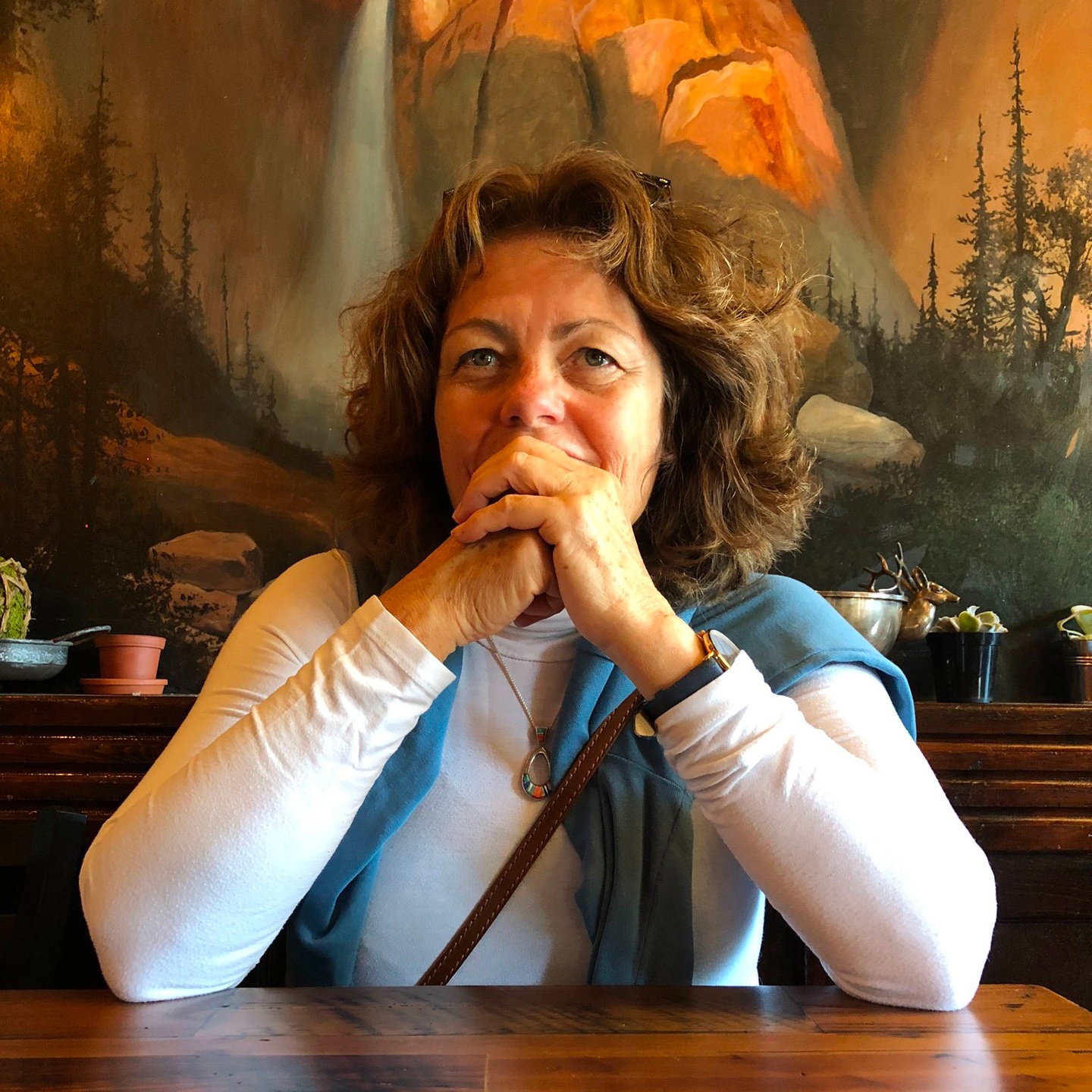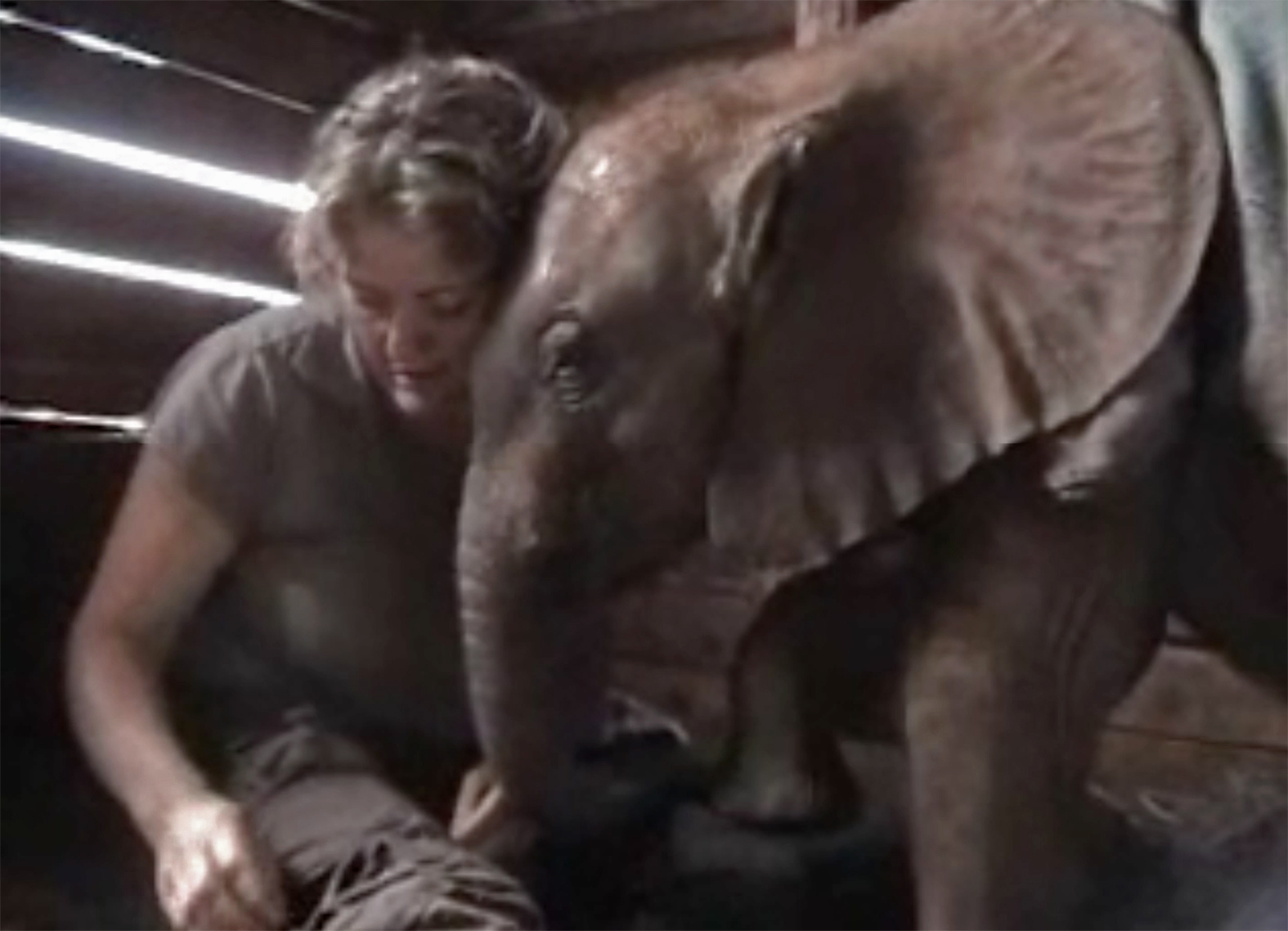
CAROLINE INGRAHAM
My Vision
I envisage a world where no animal suffers needlessly. A world in which animal guardians are empowered with knowledge and resources to safely and effectively help animals in their care. A world where we give animals back their innate wisdom to heal themselves.
Caroline is a leading expert in the field of animal self-medication and founder of Applied Zoopharmacognosy and the Ingraham Method of Individualised Medicine (IMIM). She is an author, lecturer and teacher, with 40 plus years of experience in self-medication and aromatic medicine. Her work plays an important role in animal welfare and encompasses an understanding of ethology, pharmacokinetics and pharmacology in combination with animal self-medication. Caroline's experience includes domestic animals, as well as a wide range of other species, such as; kangaroos, polar bears, brown bears, elephants, tigers, rhinos and primates.
Her work has featured in many journals and magazines and Caroline has written numerous books on animal self-medication. She has appeared on the BBC, ITV, BBC Radio 4, National Geographic TV and at the Hay Festival of Literature and Arts.
Caroline is in demand globally as a consultant and teacher, speaking regularly at international symposiums. She lectures to vets, vet nurses, animal professionals, university students all over the world, as well as empowering those with companion animals to form new lines of communication using self-medicative techniques, to help animals in their care.
Caroline's Journey

very often Most of my adult life, over the past three decades, has been dedicated to researching and observing how animals heal themselves across a wide range of species, from companion animals to kangaroos, polar bears, brown bears, elephants, tigers, rhinos and primates. I believe that from applied zoopharmacognosy, a new branch of ethology has developed which takes a new look into the causes of behavioural problems seen in domestic, companion and captive animals.
Back in the nineteen eighties I discovered that companion animals could communicate their health needs via offering them aromatic plant extracts – it was an amazing breakthrough. They could let us know which plant medicines they needed, and if they did, where they needed it, and dosed themselves accordingly.
Horses were my initial teachers. I found their body language easy to read, and they were very clear about the exact plant extracts they required. Very soon, patterns began to emerge: horses with separation anxiety mainly selected neroli; those who were wounded chose yarrow and those requiring pain relief opted for remedies such as wintergreen, arnica and St John’s wort.
From here I began observing how wild animals self-medicate, and took this information to domestic and companion animals, giving them the freedom to use their same innate capabilities to heal themselves. Many of you will familiar with the story of my German Shepherd dog (GSD) Gunner who was bitten by a rattlesnake and who had not responded to the anti-venom drip and was dying, but made an amazingly quick recovery as soon as he took the remedies.
It was the beginning of what is now known as a new science. I coined the term ‘Applied Zoopharmacognosy’ to describe the process of bringing a rich pharmacopoeia of natural remedies to animals who are not free to forage. I continued the scientific study of essential oils with leaders in the field, as well as the study of pharmacokinetics and pharmacology in relation to plant and animal health. The Ingraham Academy of Applied Zoopharmacognosy was set up to help raise awareness further among vets, zoos, sanctuaries and pet-parents around the world.
My work soon expanded to orphaned elephants in Kenya at the Sheldrick Trust. I worked with Shimba who was orphaned at six weeks old. This little elephant was relatively reclusive, so I offered neroli essential oil, which my research had shown is often selected when an animal has experienced a loss of some kind. Shimba gently inhaled the oil following its aroma with his trunk, and gradually he climbed onto my lap. This was the point at which Dame Daphne Sheldrick MBE and her daughter Angelia saw the value of the work and it wasn’t long before I was back to help Sinya.



Caroline set up a training academy in 1997 teaching and lecturing in countries such as Australia, America, Hong Kong, and Europe. She was invited by Michael Huffman, associate Professor at Kyoto University to speak in South Korea. She also introduced the subject to The sheldrick Trust in Africa, and Born Free in the UK. Ian Redmond OBE invited her to become a member of the Primate Society of Great Britain and asked if she would lecture to Zoology undergraduates at Bristol University. More recently Caroline spoke to undergraduates at the Zoological Society at the Royal College of Veterinary Surgeons, London. Caroline has trained staff and worked with a number of charities including Battersea Dogs and Cats Home as well as the RSPCA.
Books
Innate Self-Medication (Release date TBC)
The Practise of Innate Self-Medication (Release date TBC)
Help Your Dog Heal Itself: 3rd Edition
Animal Self-Medication (Out of print)
Up-coming and Past Engagements
Canine Masters: Melbourne, Australia'25
RFVS: Mallorca'25
Hay Festival of Literature and Arts
Natural Dog Conference
University of Bristol: Veterinary and Zoological Society
BBC Radio 4: Four Thought
Hay Festival of Literature and Arts
British Essential Oil Association
Your Horse Magazine
Interview with Dr Karen Becker: USA
University of Sussex: Botanica
Aromatherapy Today conference: Australia
International Conference for Innovative Veterinary Medicine: Holland
Hungarian Aromatherapy Conference
RCVS Zoological Society of London
Holistic Cat Conference
University of Bath: Botanica
Articles
Psychologies Magazine
Canadian Federation of Aromatherapy
Your Dog Magazine
Your Dog Magazine (sensory gardens)
The Veterinary Times
Your Horse Magazine
Science Psy
